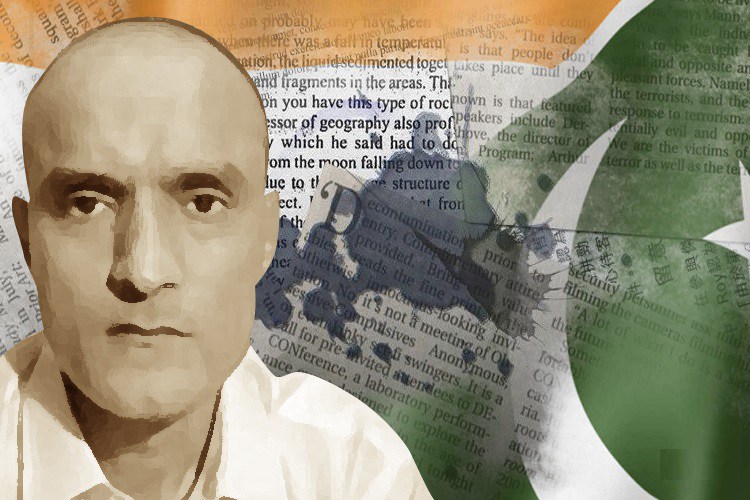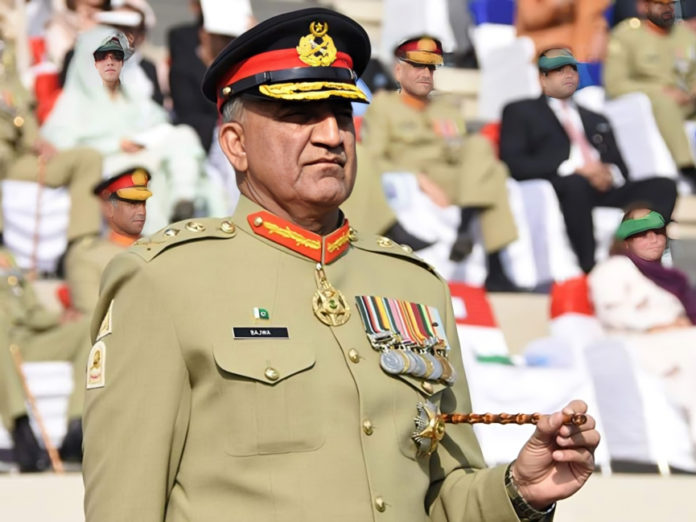With many internal and external challenges confronting the nation, the new COAS was plunged into a testing situation right from the word “go”. Stepping up his drive to isolate Pakistan diplomatically during the recent “Heart of Asia” Conference in Amritsar, Indian PM Modi’s venom for Pakistan was seen at its worst, he and Ashraf Ghani took turns taking cheap shots at Pakistan. The Russian delegate upset the Indians by condemning their attacking Pakistan at this forum as both inappropriate and incorrect.
Unprovoked Indian firing along the LOC has killed or wounded quite a number of Pakistan Army personnel and civilians. One of Gen Bajwa’s first challenges will be exercising measured restraint to go with credible response managing Pakistan’s deteriorating relations with its neighbours. Home to both strategic and tactical nuclear weapons, escalating hostilities has the potential for nuclear apocalypse. US Vice President-Elect Mike Pence said that Kashmir is a grave issue which President-Elect Trump with his deal-making abilities has the ability and expertise to resolve. With the Indians refusing bi-lateral talks we have toed their line in not asking for third party arbitration. Any attempt by Trump to try to solve this seemingly intractable problem will be more than welcome.
Thousands of suspected terrorists were nabbed in the intelligence-based kinetic operation “Zarb-e-Azb”, it stabilized North Waziristan and almost cleansed it of terrorist elements. With loss of logistical space emasculating their capacity to stage atrocities, the terrorists changed tactics and started hitting soft targets. They now operate from sanctuaries across the border with active support from the Afghan National Directorate of State Intelligence (NDSI). Gen Bajwa must consolidate and force-multiply the gains achieved by Gen Raheel Shareef.
With influential political elements depending upon 60 or so banned groups in the Punjab for electability in their constituencies, the PML (N) govt has failed to act against them as per the National Action Plan (NAP). After the Mar 27, 2016 Easter Sunday bomb attack in Lahore, Gen Raheel Shareef ordered swift counter-terror operations throughout Punjab but the early enthusiasm soon faded away. Gen Bajwa will have to re-emphasize focus on this threat. Paramilitary Rangers must be given extraordinary powers, or assume them, similar to that in place in Karachi.

Even-handed intelligence-based operations in the Punjab caused elements of Lashkar-i-Jhangvi (LJ) to partially shift their terror operations to Balochistan. The security situation has improved significantly with thousands of militants surrendering in FATA and SWAT being brought into the national mainstream. The game-changer China-Pakistan Economic Corridor (CPEC) faces considerable threat. Without the Army waging a successful counter-insurgency, there would be no CPEC. Having raised a Special Security Division for protection of Chinese engineers and workers, the Army is believed to be now organizing another special CPEC-specific security division. Many attempts to sabotage CPEC by Indian govt proxies have been prevented. RAW spy Kulbhushan Yadav, a serving Indian Naval officer, confessed fomenting terrorism in Balochistan and Karachi using a network of ‘facilitators’ using the enabling environment within the country. With Indian NSA Ajit Duval very explicit about India’s overt and covert policy provoking violence in Balochistan, their deploying resources to wage a proxy war to reignite the threat within Pakistan is no secret. The new COAS will have to cope with threats to our vital CPEC project.
Of the reforms needed in the Army, one must start with Army pensions. As a new pensioner a Lt Gen gets Rs.121,000 while an old one of the same rank gets 13,500, Maj Gen gets Rs.113,000 while an old pensioner gets only Rs.12,500, similarly a Brig gets Rs.90,000 compared to Rs.10,000 for the old, a Col Rs.74,000 compared to Rs.8,200, a Lt Col Rs.70,000 compared to the old getting Rs.7,700, a Maj Rs.5,000 compared to Rs.5,500. a Capt. Rs.25,000 compared to Rs.2,800. In effect a Capt. if he retires today gets more than a Lt Gen who retired 15 years ago! What to talk of morality, is this even logical? In the Civil Service a “new” pensioner Federal Secretary gets Rs.110,000 while the “old” pensioner has to make a living with Rs.12,200. The internationally accepted principle of “one rank one pension” must be followed, all pensioners whether civil or military getting the same scales as in the case of the judiciary. The Federal Ombudsman strongly recommended that pensions paid to the ‘old’ retirees be brought in line with their ‘new’ compatriots. The Federal Shariat Court ruled in October 1992 that “each pensioner was entitled payment of pension equal to others in the same grade and category”. The Government appealed to the Shariat Appellate Bench of the Supreme Court (SC), the Court set aside the Federal Shariat Court order on technical grounds. Fulfilling a moral and human obligation far outweighs the financial outlay.
Gen Bajwa must address another anomaly that affects the Army’s image. The allotment of plots except for gallantry in battle is wrong. Senior military officers acquiring multiple residential plots set a bad precedent for others to follow. At this rate, in ten years there will be no land left to allocate plots. Unlike the higher ranks majors do not get multiple plots to pay off their loans to purchase their apartments in the Army Scheme. Forced to commute their pension they still have to take a loan, they remain in debt after retirement. Since an overwhelming mainly retiring officers are majors this affects large percentage of retirees. All military officers should receive a house (or an apartment) commensurate to their rank when they retire. With regular monthly installments deducted from their salaries through their service tenure whatever the balance amount left to be paid should be given as an outright grant on retirement without any commutation of pension. Without being liable having to pay off a loan the retiree should be able to make a decent and comfortable living within his pension with a roof over his head.
Raheel Sharif will be remembered for strengthening the military’s support to the democratically elected govt while enhancing the role of the military in affairs of national security. Will the new COAS sustain the thrust and momentum of Gen Raheel Shareef’s legacy? The emphasis and style may be different, the message essentially will be same. The personality does not take over the COAS chair, the requirements of the chair takes over the personality. A thoroughly professional officer, Gen Bajwa is a proponent of strong civil-military relations. The challenge for sustainable economic prosperity will be to combine this with the aspirations of the people for good governance.




